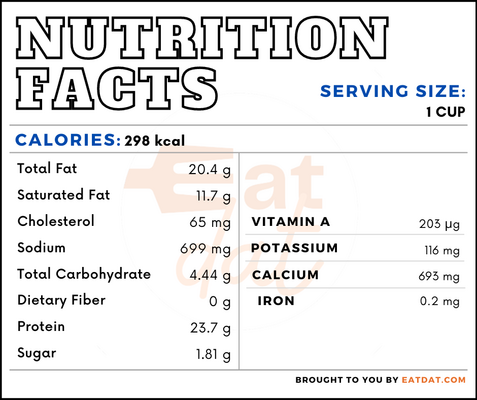
Mozzarella
What is Mozzarella?
Mozzarella is a type of cheese of Italian origin. It is usually made from buffalo’s milk through the pasta filata method, which gives it an elastic and stringy texture, especially when heated. This cheese has a mild sour taste combined with a milky flavor.
The top 10 most popular mozzarella brands in the US are:
- BelGioioso
- Frigo
- Dietz & Watson
- Sargento
- 365 Whole Foods
- Galbani
- Organic Valley
- Whole Foods Market
- Horizon Organic
- Rio Briati
Origin of mozzarella
This cheese is of Italian origin. It was first invented near Naples, where water buffaloes were traditionally domesticated for the production of dairy products. The original mozzarella always used buffalo milk and had a very short shelf life, and hence was only consumed locally for centuries. It was only with the development of refrigeration and transportation systems that it spread to other parts of the country, and eventually to the rest of the world. Today, with the popularity of Italian and Italian-American cuisines, this cheese is known globally.
Nutrition
Nutritional profile for mozzarella (1 cup):

Mozzarella is rich in calcium, phosphorous, potassium, sodium, vitamin A, and retinol. Also it contains magnesium, selenium, folate, choline, and fatty acids in decent quantities. Studies show that regular consumption of cheese may help in combating inflammation, preventing osteoporosis and arthritis, decreasing the risk of fractures, and managing obesity. As this cheese is made from buffalo milk, it also has higher fat, protein, and calcium content.
Commercial production
Commercial production of this cheese can take place using buffalo’s milk or cow’s milk. The buffalo milk version is protected under an European Union’s PDO. Mozzarella production must begin within 60 hours of milking the buffaloes. First, whey rennet from the same herd of water buffalo as the milk is added to the milk for coagulation. Then, the curdled milk is mixed with boiling water to melt it, a process which gives it the stringy texture. Finally, the cheese is shaped into balls and packaged in brine to retain its freshness and moisture.
Mozzarella recipes
This cheese is often used in a variety of dishes to give it that stringy and stretchy quality. It is a favorite in Italian dishes such as pizzas, pastas, risottos, arancini, frittatas, and timballo. Also, it is often used in other cuisines and works well with dishes like croquettes. Here are a few recipes to try:
- Insalata Caprese
- Crostini
- Bruschetta
- Mozzarella en Carrozza
- Arancini
- Grilled Pita
- Moussaka
- Spanakopita
- Pastitsio
- Aligot
- Kanafa
- Za’atar Manakish
- Baked Ziti
- Flammkuchen
- Halawet el-jeben
FDA regulations
The FDA defines this cheese as a product prepared from dairy ingredients and containing at least 45 percent milkfat and 52 percent moisture. It must be pasteurized in the US. Mozzarella made from buffalo’s milk (mozzarella di bufala) is now protected under European Union through a PDO (EC Regulation no. 1107/96) since 1996, and can only be prepared in the region of Campania in Italy.
References
Mozzarella di Bufala Campana PDO, European Commission, https://ec.europa.eu/info/food-farming-fisheries/food-safety-and-quality/certification/quality-labels/eu-quality-food-and-drink/mozzarella-di-bufala-campana_en
Rozenberg, Serge et al. “Effects of Dairy Products Consumption on Health: Benefits and Beliefs–A Commentary from the Belgian Bone Club and the European Society for Clinical and Economic Aspects of Osteoporosis, Osteoarthritis and Musculoskeletal Diseases.” Calcified tissue international vol. 98,1 (2016): 1-17. doi:10.1007/s00223-015-0062-x, https://www.ncbi.nlm.nih.gov/pmc/articles/PMC4703621/
Ah, Jana, and Govind P Tagalpallewar. “Functional properties of Mozzarella cheese for its end-use application.” Journal of food science and technology vol. 54,12 (2017): 3766-3778. doi:10.1007/s13197-017-2886-z, https://www.ncbi.nlm.nih.gov/pmc/articles/PMC5643830/
